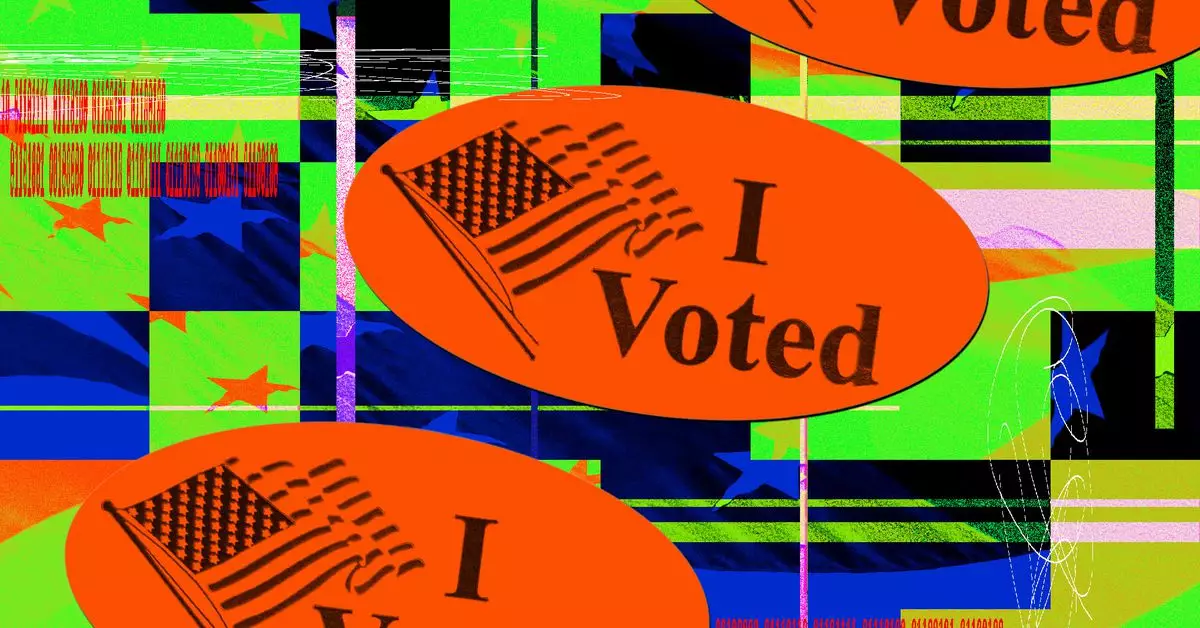In an era defined by technological advancements and an interconnected global landscape, the specter of foreign interference in democratic processes has become alarmingly prominent. Recent sanctions levied by the U.S. government against Russian and Iranian groups underscore the persistent threat these entities pose, particularly concerning the upcoming 2024 presidential election. The U.S. Treasury Department’s announcement reveals a troubling strategy aimed at undermining electoral integrity and stoking social discord.
Among the organizations implicated is the Moscow-based Center for Geopolitical Expertise, which is purportedly linked to Russia’s Main Intelligence Directorate (GRU). This sinister group has established a sophisticated operation that includes developing its own AI tools hosted on independent servers. The aim? To sidestep restrictions imposed by foreign web-hosting services that might prevent the dissemination of harmful content. Leveraging these tools, they create elaborate disinformation narratives that spread across a vast network of fictitious news outlets, capitalizing on the very technology designed to facilitate information sharing.
Moreover, this Russian organization has allegedly manipulated video content to discredit American political figures, such as Vice President Kamala Harris’s running mate, Tim Walz. These tactics highlight a tactical level of aggression aimed at not only influencing votes but also destabilizing public trust in political institutions. The deliberate crafting of fake stories signifies a new frontier in the art of digital deception.
The sanctions do not stop with Russia; Iran’s involvement is equally concerning. The Cognitive Design Production Center, linked to the Islamic Revolutionary Guard Corps (IRGC), has attracted scrutiny for its long-term plans to influence U.S. elections. Reports indicate that Iranian operatives have been engaged in cyberattacks targeting candidates, injecting further chaos into the already tumultuous political environment. This ongoing cyber warfare is highlighted by recent indictments of Iranian nationals for their disruptive activities against American political campaigns.
In addition to direct measures, platforms like OpenAI have taken steps to address this threat by banning accounts tied to Iranian influence operations. Such interventions are crucial in mitigating the potential negative impacts of disinformation and maintaining the integrity of electoral processes.
The ramifications of these interference attempts stretch far beyond immediate election outcomes. As highlighted by Bradley Smith, the Acting Under Secretary of the Treasury for Terrorism and Financial Intelligence, these foreign governments aim to exploit vulnerabilities within the democratic framework. Through targeted disinformation campaigns, they seek to sow discord among the American populace, exacerbating divisions that can lead to social instability.
The critical challenge for the U.S. and other democracies lies in defending against these sophisticated tactics while promoting resilience among the electorate. With technology evolving rapidly, the need for comprehensive strategies to combat misinformation is more pressing than ever. Ensuring a well-informed public and safeguarding electoral integrity should be paramount as nations navigate this precarious landscape.
The recent actions by the U.S. government serve as a stark reminder of the ongoing battle against foreign interference in domestic electoral processes. As the 2024 elections approach, vigilance is essential—not only from government entities but also from citizens prepared to discern truth from manipulation in a complex digital world.


Leave a Reply